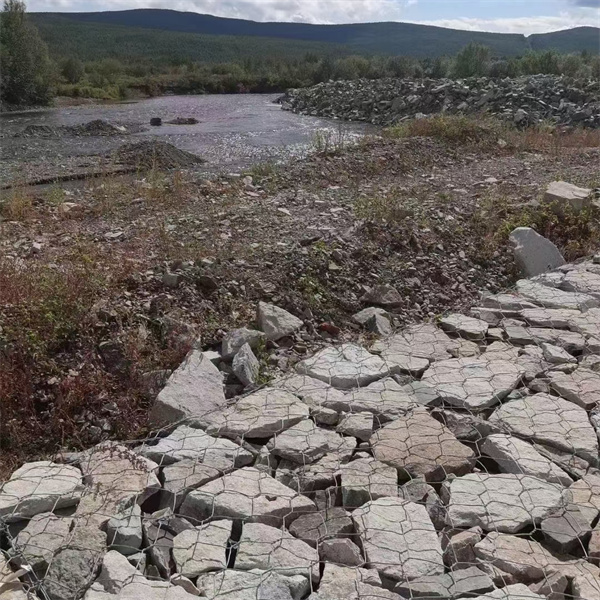Nën . 10, 2024 04:17 Back to list
Exploring the Benefits of Gabion Wall Architecture for Sustainable Construction Solutions
Exploring the Benefits of Gabion Wall Architecture
Gabion walls, constructed from wire mesh filled with rocks, stones, or other materials, have emerged as a popular choice in modern architecture and landscaping. These versatile structures not only provide functional benefits but also boast aesthetic appeal, making them an excellent option for various applications. In this article, we will delve into the advantages of gabion wall architecture and explore why they are becoming a preferred choice for both residential and commercial projects.
1. Sustainability and Eco-friendliness
One of the primary reasons architects and builders gravitate towards gabion walls is their sustainability. The materials used in gabion walls are often sourced locally, reducing transportation emissions and costs. Many projects utilize recycled materials, further decreasing the environmental impact. The design of gabions allows for vegetation growth, promoting biodiversity and offering habitats for local wildlife. This blend of function and ecology makes gabion walls a responsible choice for environmentally-conscious builders.
2. Cost-effectiveness
When it comes to budget considerations, gabion walls stand out as a cost-effective solution. The materials required for construction—metal mesh and local stones—are generally affordable, and labor costs tend to be lower due to the ease of assembly. Unlike traditional masonry or concrete walls, gabions require less specialized labor, making them a budget-friendly choice for projects with financial constraints. Furthermore, their durability ensures that they require minimal maintenance over time, adding to their overall cost-efficiency.
3. Versatility and Aesthetic Appeal
Gabion walls are incredibly versatile and can be adapted to various styles and functions. They can be used for retaining walls, garden borders, noise barriers, and decorative features in landscapes. The stones used in gabions come in a variety of shapes, sizes, and colors, allowing for customization that aligns with the desired aesthetic of a project. Whether a rustic, natural look or a modern, sleek design is preferred, gabion walls can accommodate diverse architectural visions.
In landscaping, gabion walls can blend seamlessly with the environment, transforming otherwise dull spaces into visually appealing features. When plants and grasses grow around or through the stones, they create a natural and organic look that enhances the beauty of outdoor spaces.
buy gabion wall architecture

4. Structural Integrity and Durability
Gabion walls are renowned for their structural strength. The weight of the stones within the mesh provides stability, making them suitable for various conditions, including slopes and areas prone to erosion. Their permeability allows for natural drainage, preventing water pressure buildup and reducing the risk of failure common in traditional retaining walls. As a result, gabion walls maintain their integrity over time, even in challenging environments.
5. Ease of Construction and Repair
Constructing a gabion wall is a straightforward and efficient process. The wire mesh cages can be pre-fabricated or assembled on-site, and filling them with stones typically requires minimal specialized skills. This ease of construction means shorter project timelines and less disruption to surrounding areas.
Additionally, in the event of damage, repairs can be easily executed by replacing sections or stones without the need for extensive overhaul. This characteristic makes gabion walls a practical choice for both immediate landscaping needs and long-term durability.
6. Applications in Urban Environments
As urban areas continue to expand, the need for innovative landscaping solutions increases. Gabion walls offer effective erosion control and slope stabilization in urban settings, where space is often limited. They can also be used in water management systems to control runoff and manage drainage. Cities can integrate gabion walls into public parks, pedestrian pathways, and as part of urban infrastructure, marrying functionality with modern landscape design.
Conclusion
With their unique combination of sustainability, cost-effectiveness, versatility, and structural integrity, gabion walls are paving the way for modern architecture and landscaping. As more architects and builders recognize their benefits, the popularity of gabion wall architecture continues to grow. Whether enhancing a residential garden or serving a functional role in urban infrastructure, gabion walls represent a forward-thinking choice for contemporary construction. Investing in gabion walls is not merely a decision for functionality; it’s a commitment to an eco-friendly and visually engaging future.
-
The Role of Galvanized Gabion Mesh in Riverbank Protection
NewsJun.26,2025
-
The Role of Gabion Basket Raised Bed in Sustainable Gardening
NewsJun.26,2025
-
Quality Assurance of Wire Mesh Gabion Baskets
NewsJun.26,2025
-
Installation Guide for Welded Gabion Box
NewsJun.26,2025
-
How to Choose the Right Gabion Box
NewsJun.26,2025
-
Different Types of Gabion Wire Mesh
NewsJun.26,2025
-
Why PVC Coated Gabion Mattress Is the Best Solution for Long-Term Erosion Control
NewsMay.23,2025






